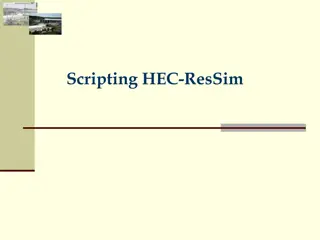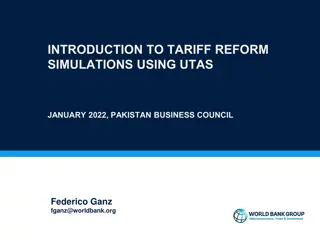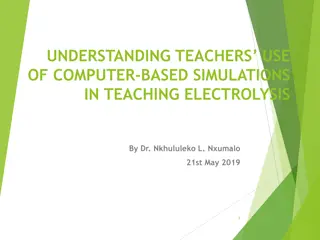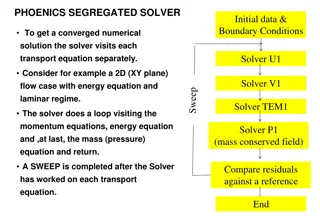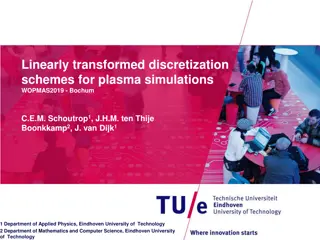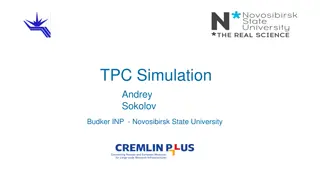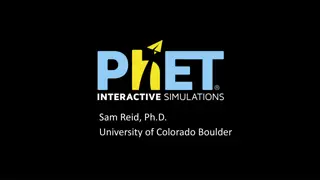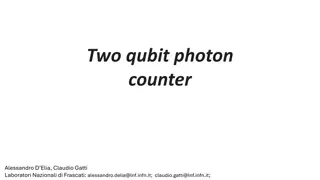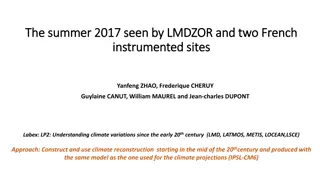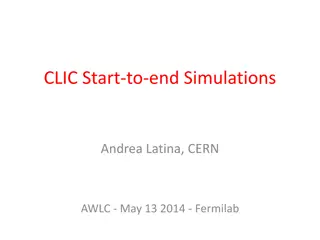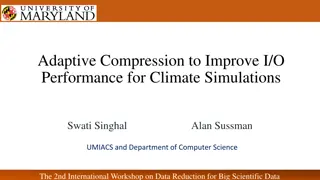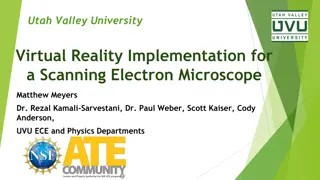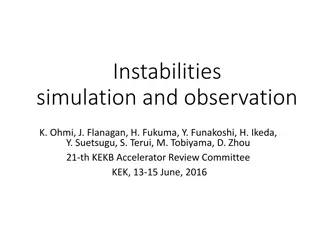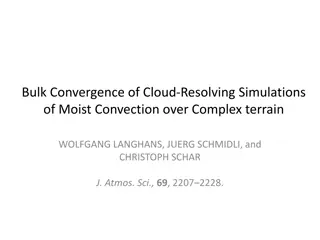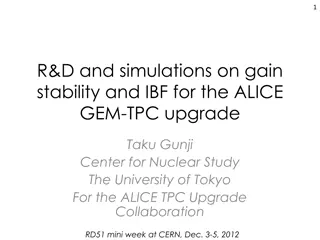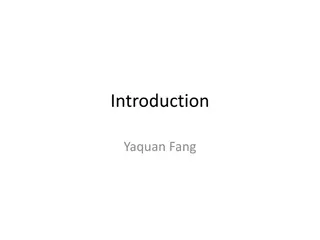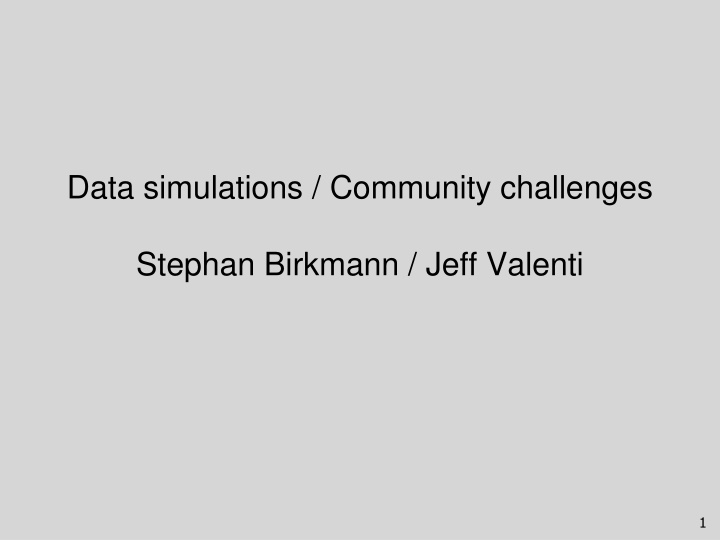
Unlocking the Potential of Data Challenges in the Scientific Community
Explore the world of data simulations and community challenges through topics like creating simulators, agreeing on simulation guidelines, types of data challenges, benefits of participating, and more. Discover how these challenges can help in formulating observing strategies, building community support, and facilitating algorithm development.
Download Presentation

Please find below an Image/Link to download the presentation.
The content on the website is provided AS IS for your information and personal use only. It may not be sold, licensed, or shared on other websites without obtaining consent from the author. If you encounter any issues during the download, it is possible that the publisher has removed the file from their server.
You are allowed to download the files provided on this website for personal or commercial use, subject to the condition that they are used lawfully. All files are the property of their respective owners.
The content on the website is provided AS IS for your information and personal use only. It may not be sold, licensed, or shared on other websites without obtaining consent from the author.
E N D
Presentation Transcript
Data simulations / Community challenges Stephan Birkmann / Jeff Valenti 1
Simulator uses Create simulator Performance Description Release simulated data Organize data challenge Release simulator 2
Agree on simulation guidelines Science inputs e.g., simulated spectrum, parameter space Operational assumptions (the rules ) e.g., reset, read, read Instrumental effects to consider e.g., photon noise, read noise, intra-pixel, Presentation of results e.g., PPM vs. wavelength 3
Performance description examples PPM vs. wavelength 6-hr clock time 1 hr R=700 bin R=100 4
How to agree on simulation guidelines? (Very) small working group? 1-2 participants per IDT when? 5
Types of data challenges Types of simulated data Raw images Instrument artifacts Reduced spectroscopy/photometry Model constraints Types of analyses Recover inputs with knowledge of input Recover inputs from blind analysis 6
(Benefits of data challenges) (Build community support) We are beyond this point (List key factors that affect experiment) Data quality issues Model parameters Product of simulation step (Build familiarity with ground system) Standard data products Observing templates Product of simulation step 7
Benefits of data challenges Formulate observing strategy based on... Ability to remove known instrumental effects e.g., persistence, ghosts, jitter Only useful until real data are released Ability to recover input model parameters e.g., composition, thermal structure Useful throughout mission lifetime Inform TAC Allocate observing time wisely Facilitate pipeline algorithm development 8
Participation in data challenges Advantages Craft better proposals Become a recognized expert Advertise instrument capabilities (Obtain funding) Disadvantages May help competing proposals Requires significant effort 9
Which must be done? Would you participate? Create simulator Performance Description Release simulated data Data challenge Release simulator 10




